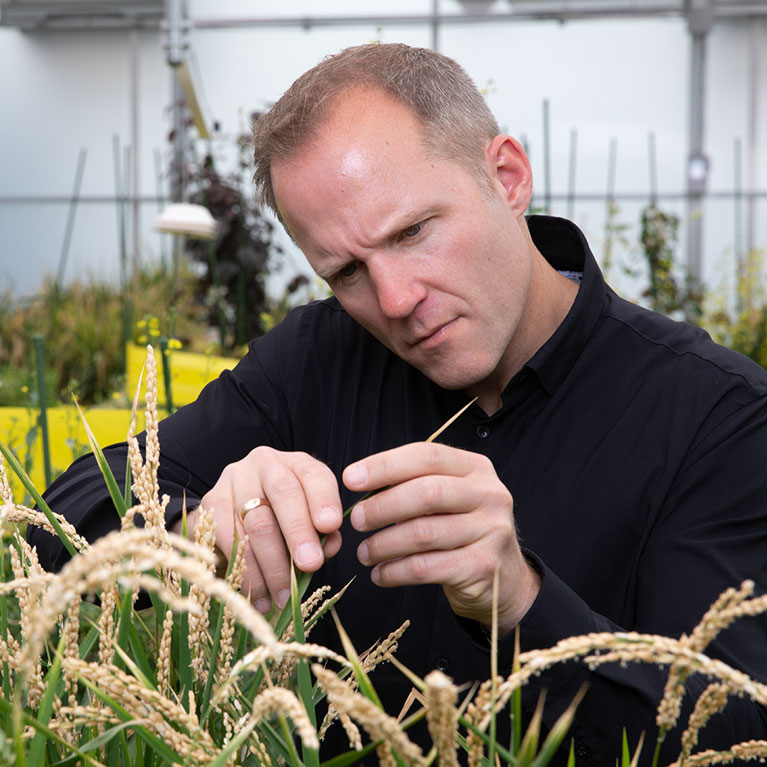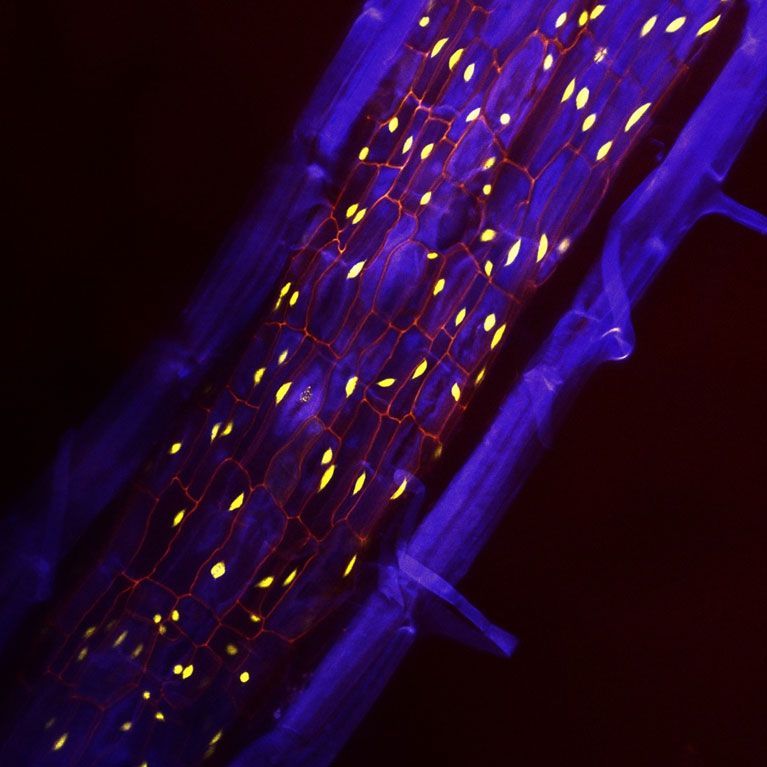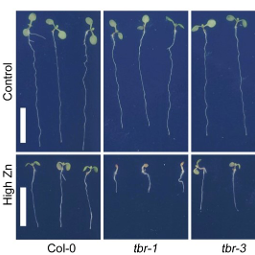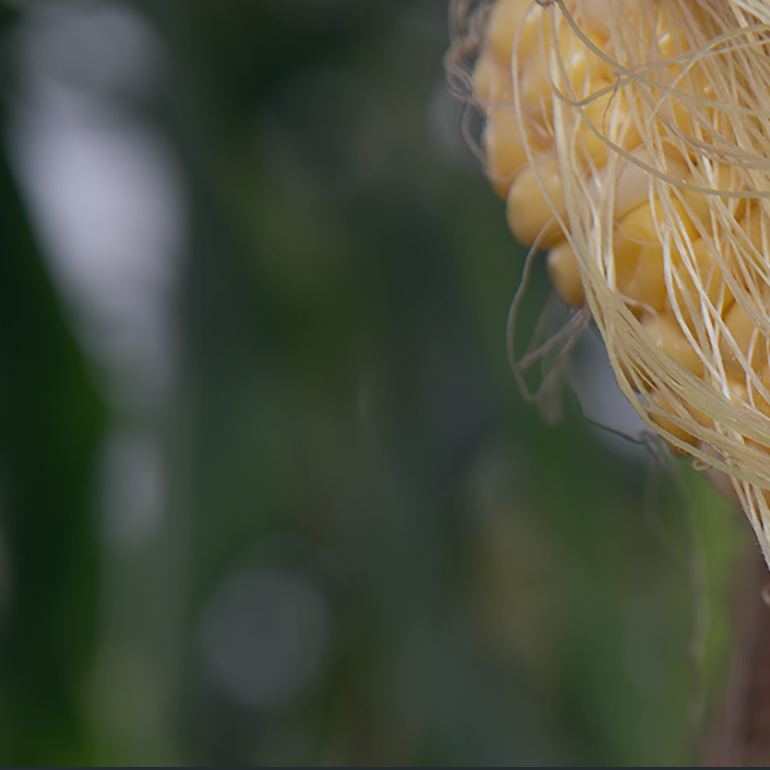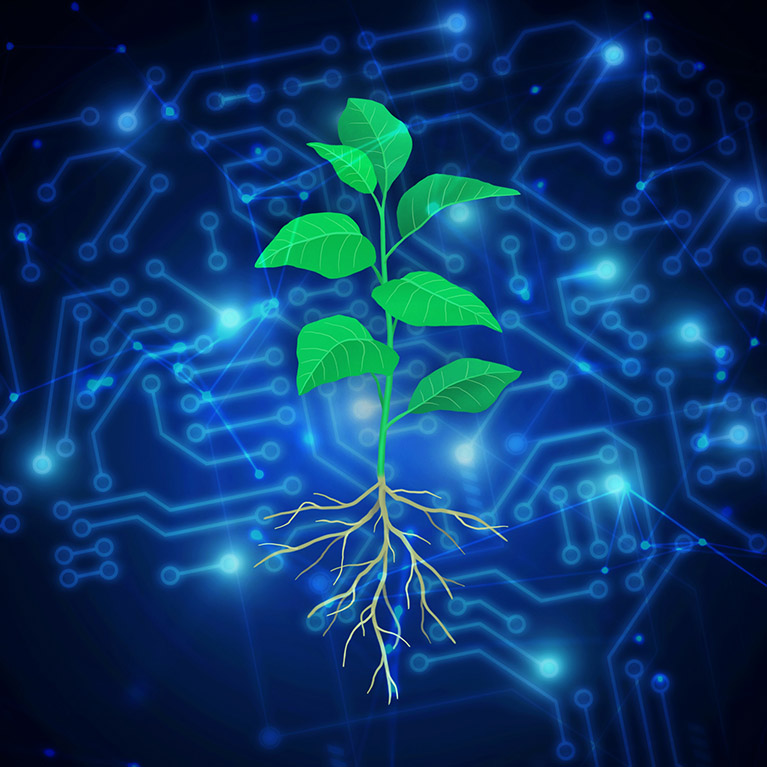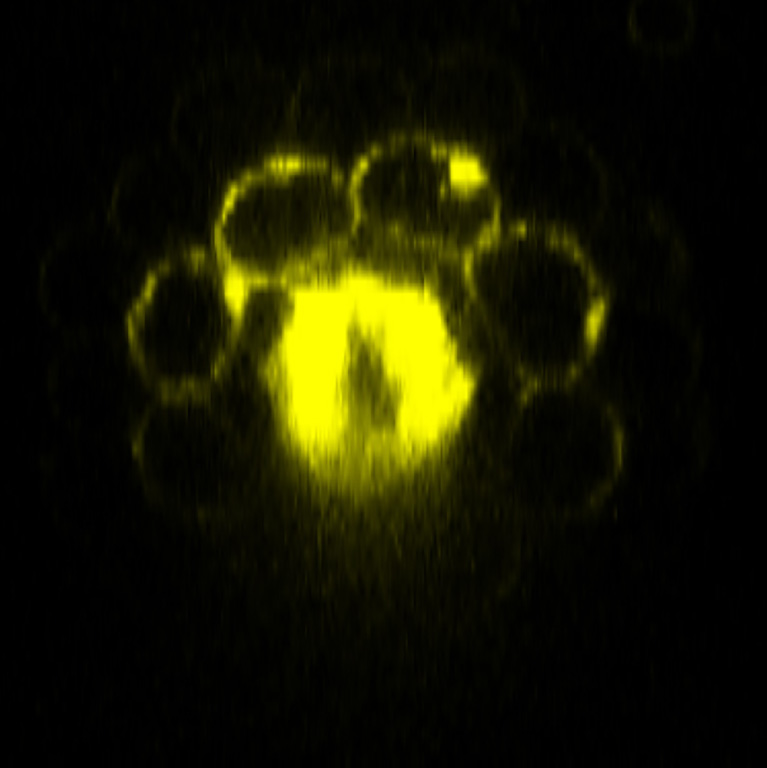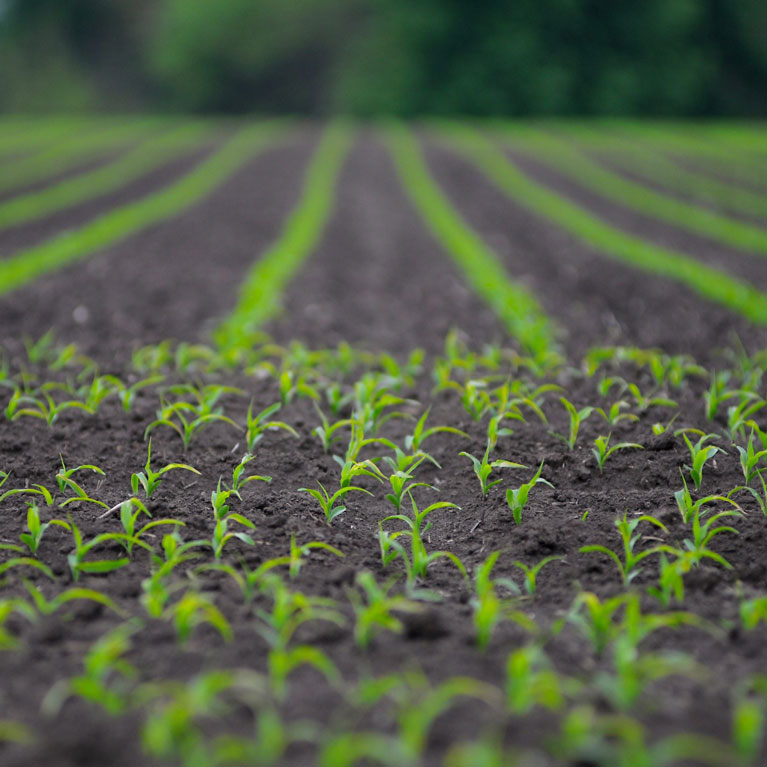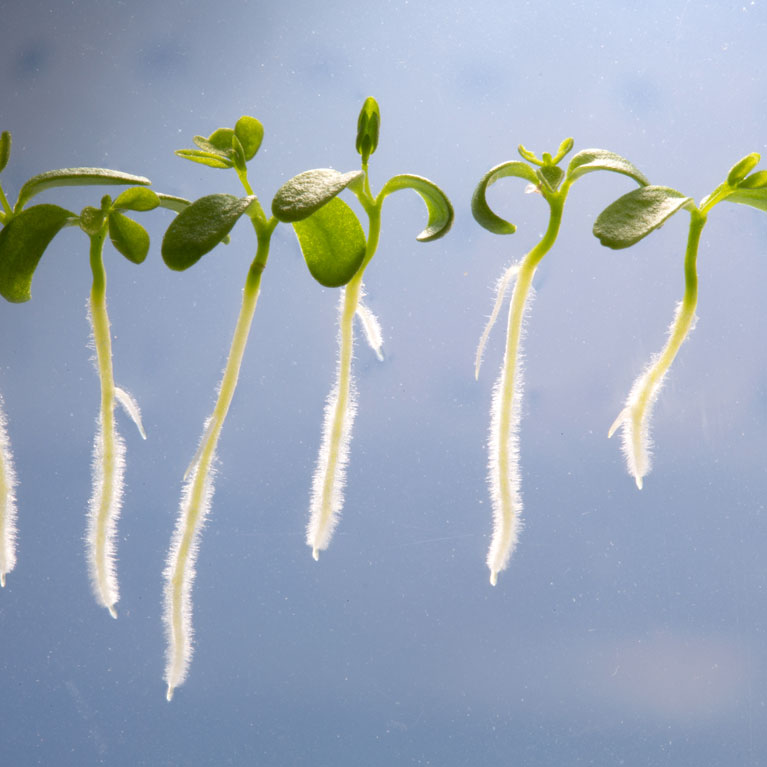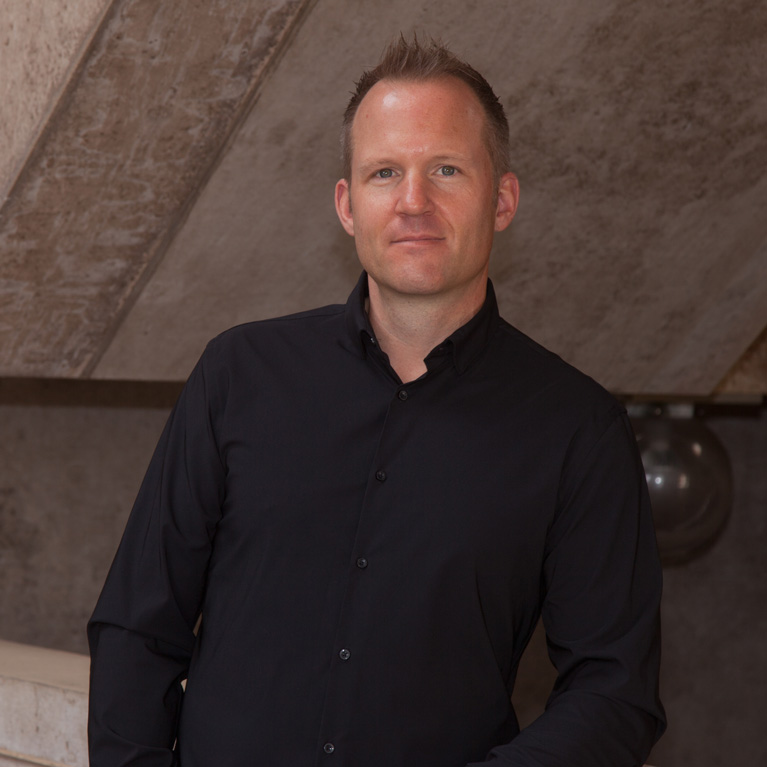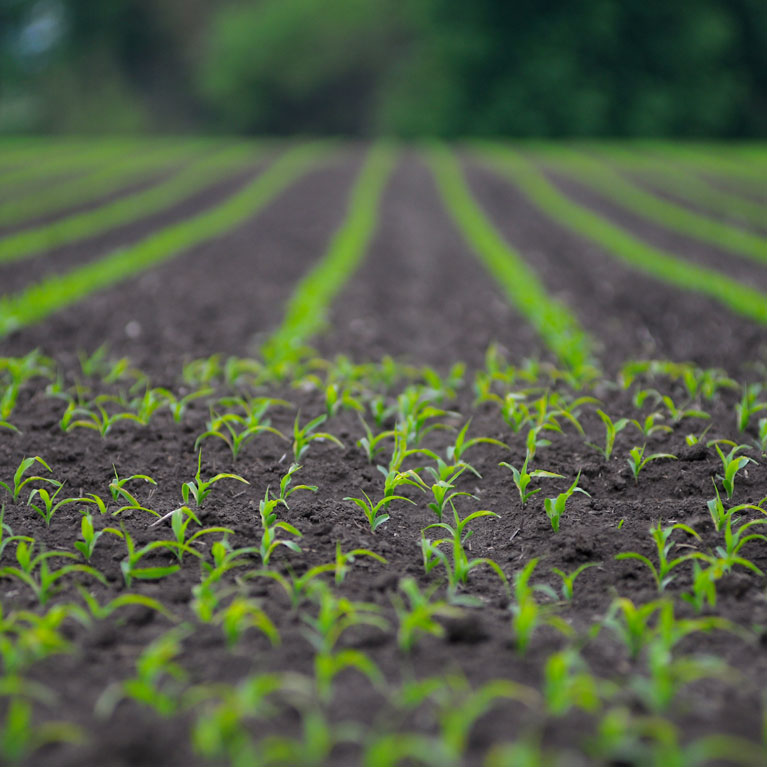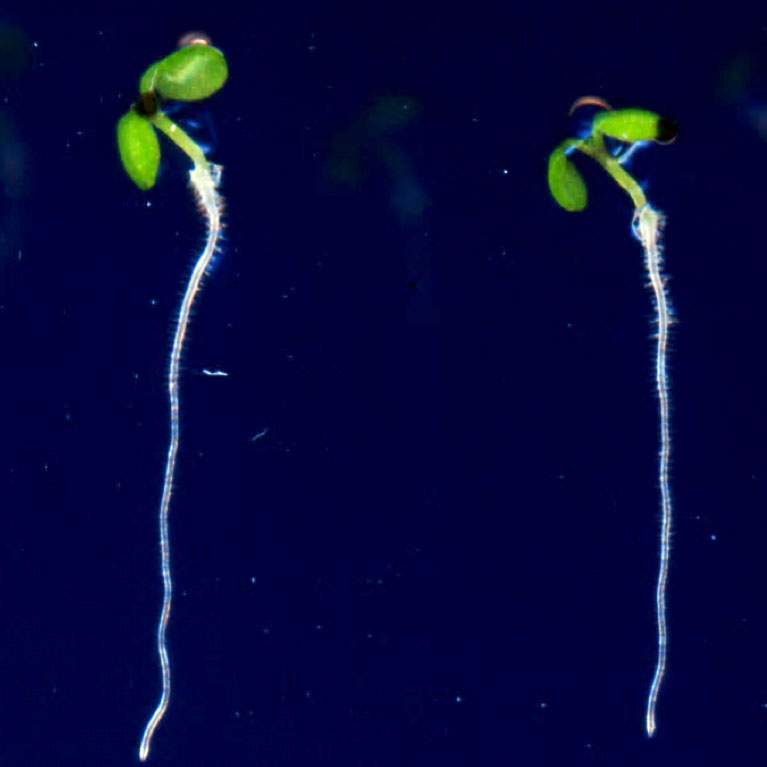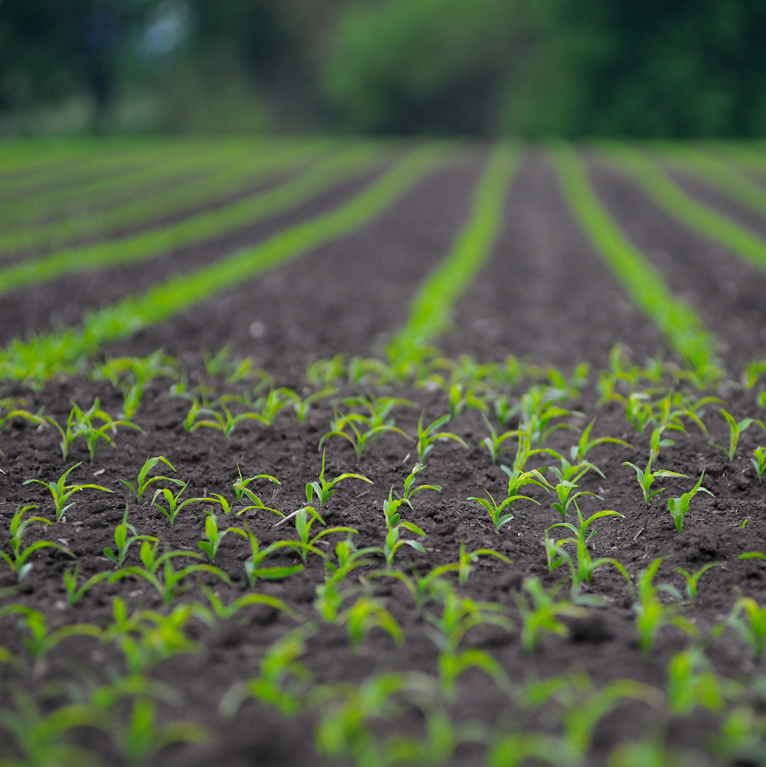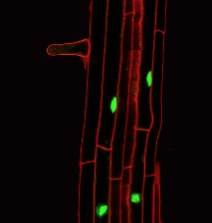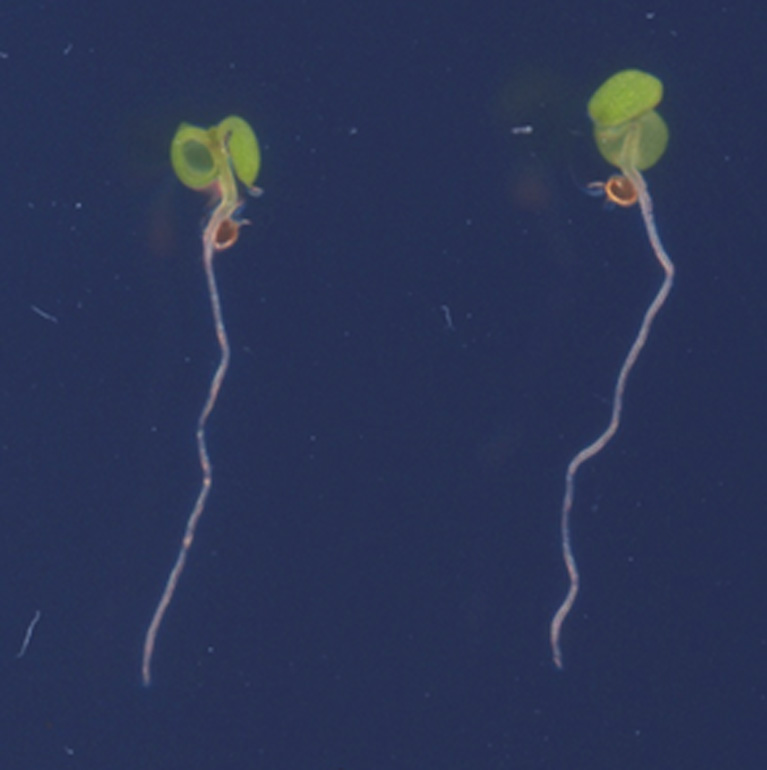Press
Salk Professor Wolfgang Busch receives NOMIS Distinguished Scientist and Scholar Award
LA JOLLA—Salk Institute Professor Wolfgang Busch, director of the Harnessing Plants Initiative and Hess Chair in Plant Science at Salk, has received a 2025 NOMIS Distinguished Scientist and Scholar Award. The NOMIS Foundation bestows this honor to “exceptional scientists and scholars whose innovative ideas and approaches involve interdisciplinary collaboration and apply a broad range of methods, building bridges across the boundaries of the sciences and humanities.”
Two-in-one root armor protects plants from environmental stressors and fights climate change
LA JOLLA—Plants may burrow into the ground and stretch toward the sun, but they’re ultimately stuck where they sprout—at the mercy of environmental threats like temperature, drought, and microbial infection. To compensate for their inability to up and move when danger strikes, many plants have evolved ways to protect themselves by altering their physiology, such as building armor around parts of their body and roots called the periderm. However, since many plant biologists who study tissue development look at young plants, later-in-life periderm development has remained relatively unexplored.
Study reveals key gene protecting plants from harmful metals in soil
LA JOLLA—The negative impact of human activity on Earth doesn’t just affect our planet’s atmosphere—it goes much deeper, into its soils. For instance, excessive application of manure or sewage sludge can increase heavy metal concentrations in agricultural land where vital crops are grown. One of these heavy metals is zinc, a micronutrient necessary for plant and animal health. In excess, however, zinc can be extremely damaging to sensitive plant species.
Key nutrients help plants beat the heat
LA JOLLA—Global temperatures are on the rise, with experts projecting an increase of 2.7°F by 2050. Because plants cannot regulate their own temperatures, they are especially sensitive to these temperature changes. In higher temperatures, plants instruct their root systems to grow faster, creating long roots that stretch through the soil to absorb more water and nutrients. While this response may help the plants in the short term, new research suggests it’s both unsustainable for the plants and potentially harmful for humans in the long term.
Artificial intelligence helps scientists engineer plants to fight climate change
LA JOLLA—The Intergovernmental Panel on Climate Change (IPCC) declared that removing carbon from the atmosphere is now essential to fighting climate change and limiting global temperature rise. To support these efforts, Salk scientists are harnessing plants’ natural ability to draw carbon dioxide out of the air by optimizing their root systems to store more carbon for a longer period of time.
Controlling root growth direction could help save crops and mitigate climate change
LA JOLLA—Above ground, plants stretch toward the sun. Below ground, plants tunnel through the earth. As roots soak up water and nutrients from surrounding soil, they grow and stretch to develop distinct root system architectures. The root system architecture determines whether roots remain in the shallow soil layers or grow steeper and reach deeper soil layers. Root systems are central to plant survival and productivity, determining the plant’s access to nutrients and water and, therefore, the plant’s ability to withstand nutrient depletion and extreme weather like drought.
Iron influences plant immunity and may promote resiliency against climate change
LA JOLLA—Plants and animals alike rely on iron for growth and regulation of microbiomes—collections of bacteria, fungi, and more that co-exist in places like the human gut or the soil around a plant’s roots. Plants face a special challenge when acquiring iron, since the strategies plants use to increase iron availability alter the root microbiome and can inadvertently benefit harmful soil-dwelling bacteria.
Salk Institute receives $50 million from Hess Corporation to mitigate climate change through plant science
LA JOLLA—Hess Corporation is donating $50 million to the Salk Institute’s Campaign for Discovery: The Power of Science, a seven-year, $750 million comprehensive fundraising campaign to attract the people and build the technology and space necessary to accelerate critical research. This gift will specifically advance Salk’s Harnessing Plants Initiative—an effort to mitigate climate change by optimizing plants and supporting wetlands to increase capture of excess atmospheric carbon—and provide vital infrastructure for this work by establishing the new Hess Center for Plant Science.
Salk Institute Professors Joanne Chory and Wolfgang Busch to speak at PlantACT!
LA JOLLA—PlantACT! Plants for Climate Action, a European initiative founded to unite plant science experts in the effort to mitigate climate change, will welcome Salk Professors Joanne Chory and Wolfgang Busch to an upcoming two-day event in New York City. The event, called Growing a Resilient Society and hosted by the University of Cologne New York Office and partners, will feature a free public panel discussion with Chory and an invite-only experts’ workshop research presentation by Busch.
Salk Professor Wolfgang Busch named first incumbent of the Hess Chair in Plant Science
LA JOLLA—Salk Professor Wolfgang Busch has been recognized for his contributions and dedication to advancing science through research by being named the first holder of the Hess Chair in Plant Science, effective April 1, 2021.
Salk Institute and Sempra Energy announce project to advance plant-based carbon capture and storage research
SAN DIEGO and LA JOLLA—The Salk Institute and Sempra Energy (NYSE: SRE) today announced a new project to advance plant-based carbon capture and sequestration research, education and implementation to help address the climate crisis. Sempra Energy is donating $2 million to the Salk Institute to help fund the five-year project.
Salk promotes Wolfgang Busch to full professor
LA JOLLA—The Salk Institute has promoted Wolfgang Busch to the rank of professor for his groundbreaking contributions to plant biology. The promotion was based on recommendations by Salk faculty and nonresident fellows, and approved by President Rusty Gage and the Institute’s Board of Trustees.
The Salk Institute to receive $12.5 million gift from Hess Corporation to accelerate development of plant-based carbon capture and storage
LA JOLLA—Salk’s Harnessing Plants Initiative (HPI) will receive a $12.5 million gift from Hess Corporation (NYSE: HES) to advance two projects to enhance plants’ natural ability to store carbon and mitigate the effects of climate change: the CRoPS (CO2 Removal on a Planetary Scale) program and the Coastal Plant Restoration (CPR) program. These projects build on the Salk discovery of a crucial gene that will help the team develop plants with larger root systems capable of absorbing and storing potentially billions of tons of carbon per year from the atmosphere.
Getting to the root of how plants tolerate too much iron
LA JOLLA—Iron is essential for plant growth, but with heavy rainfall and poor aeration, many acidic soils become toxic with excess iron. In countries with dramatic flood seasons, such as in West Africa and tropical Asia, toxic iron levels can have dire consequences on the availability of staple foods, such as rice.
Gene identified that will help develop plants to fight climate change
LA JOLLA—Hidden underground networks of plant roots snake through the earth foraging for nutrients and water, similar to a worm searching for food. Yet, the genetic and molecular mechanisms that govern which parts of the soil roots explore remain largely unknown. Now, Salk Institute researchers have discovered a gene that determines whether roots grow deep or shallow in the soil.
Salk Institute initiative to receive more than $35 million to fight climate change
LA JOLLA—The Salk Institute’s Harnessing Plants Initiative to combat climate change using plants, led by Professor Joanne Chory, executive director of the Harnessing Plants Initiative, will receive funding of more than $35 million from over 10 individuals and organizations through The Audacious Project, a highly competitive program housed at TED, the nonprofit devoted to ideas worth spreading. The collective commitments represent one of the largest gifts to a single project in the Institute’s history.
A better dye job for roots—in plants
LA JOLLA—(June 1, 2017) Once we start coloring our hair, we may be surprised to learn that we begin to have a problem in common with plant biologists: finding the right dye for our roots. In the case of the biologists, just the right chemical is needed to measure exactly how plant roots grow. Now, a researcher at the Salk Institute has discovered a fluorescent dye that, paired with other imaging techniques, reveals root growth to be influenced by a major plant hormone more than previously thought.
Helping plants pump iron
LA JOLLA—Just like people, plants need iron to grow and stay healthy. But some plants are better at getting this essential nutrient from the soil than others. Now, a study led by a researcher at the Salk Institute has found that variants of a single gene can largely determine a plant’s ability to thrive in environments where iron is scarce.
Salk Institute hires star scientists in plant biology and cancer research
LA JOLLA—The Salk Institute is pleased to welcome Wolfgang Busch as an associate professor and Edward Stites as an assistant professor, leaders of plant science and cancer research, respectively.
In the media
Plants are great at storing CO2. These scientists aim to make them even better.
ensia.com
Salk Scientists Debate Editing Plant Genes To Fight Climate Change
KPBS
This Farming Robot is Looking for Crowdfunding to Plant its Seeds
Inverse
Salk Institute to public: Can you spare $314K for a seed-planting robot?
The San Diego Union-Tribune
